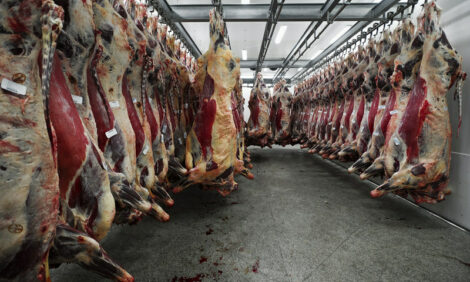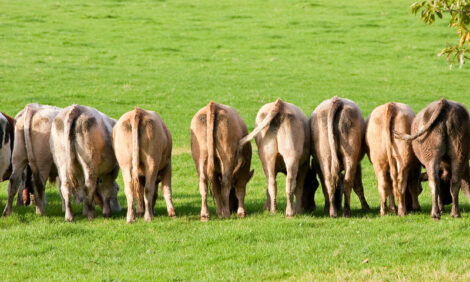



Grasping the opportunity, EU Farmers Go to Ireland
EU - Dairy farmers from all over Europe are presently in Cork for the European Dairy Farmers’ (EDF) Congress 2009 which is taking place from 24-26 June.‘Grasping the opportunity’ is the theme for the event which returns to Ireland for the first time since 1993. The programme for the EDF Congress combines a conference with visits to farms; the 250 delegate dairy farmers visited Teagasc’s Dairy Production Research Centre in Moorepark, Fermoy this morning, Thursday, 25 June.
Speaking at the opening of the conference in Cork yesterday afternoon, John Maher of Teagasc said that there are opportunities for Irish dairy farmers to expand given the comparative advantage Ireland has in producing milk from a long grass-growing season in Ireland.
Jean François Verdenal, President of EDF, told the delegates that the financial crisis has slowed down the growth in the consumption of dairy products across the world. He pointed out that the EDF milk price comparison project showed that the average milk price from 18 EU dairy companies was 23 cent per litre in April 2009, down from 32 cent per litre in April 2008 and representing a 27 per cent drop.
Leading Irish dairy farmers Michael Murphy and Mike Magan made a joint presentation to the conference. They said that exporting nations like Ireland, where the home market accounts for just 18 per cent, must be competitive to survive. They argued that dairy farmers will face huge volatility in product prices in the future caused by very small surpluses or shortages. With milk quotas due to finish in 2015, they said that Irish milk production is likely to quadruple in the next 25 years. The long grass growing season gives Ireland a comparative advantage, but they argued that the fragmented and non integrated structure of the dairy processing industry is a comparative disadvantage.
Steffi Wille from EDF STAR, who works with the von Thunen Institute in Germany outlined how the average cost of producing milk across the European union exceeded the total returns, despite the higher milk prices in 2008. She contended that in view of these figures it is very unlikely that milk prices will stay at the current low level because such a low milk price would force many dairy farmers out of business. Farmers right across the EU were affected by higher input costs in 2008, particularly for energy, fertilizer and feed.
TheCattleSite News Desk


